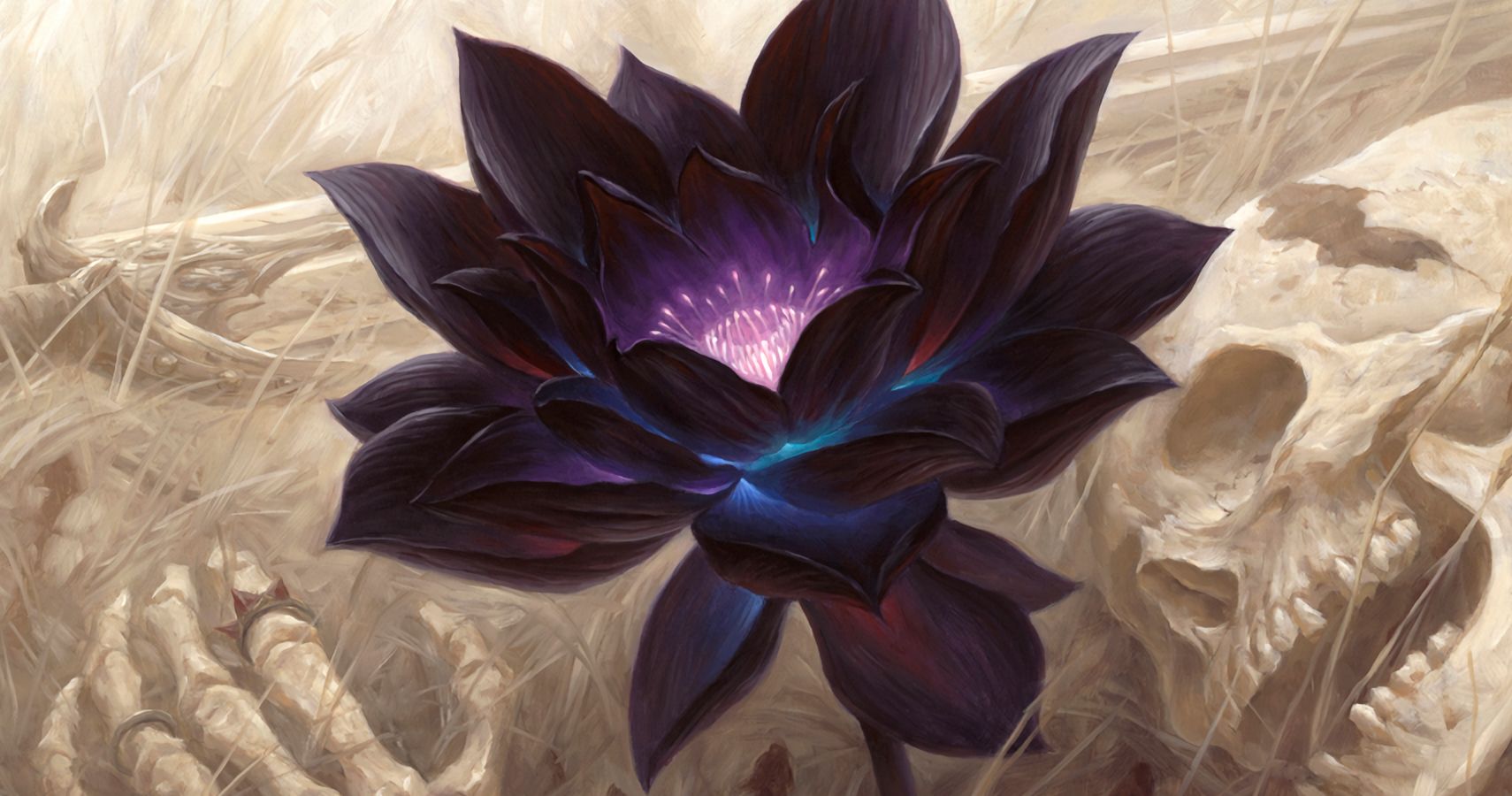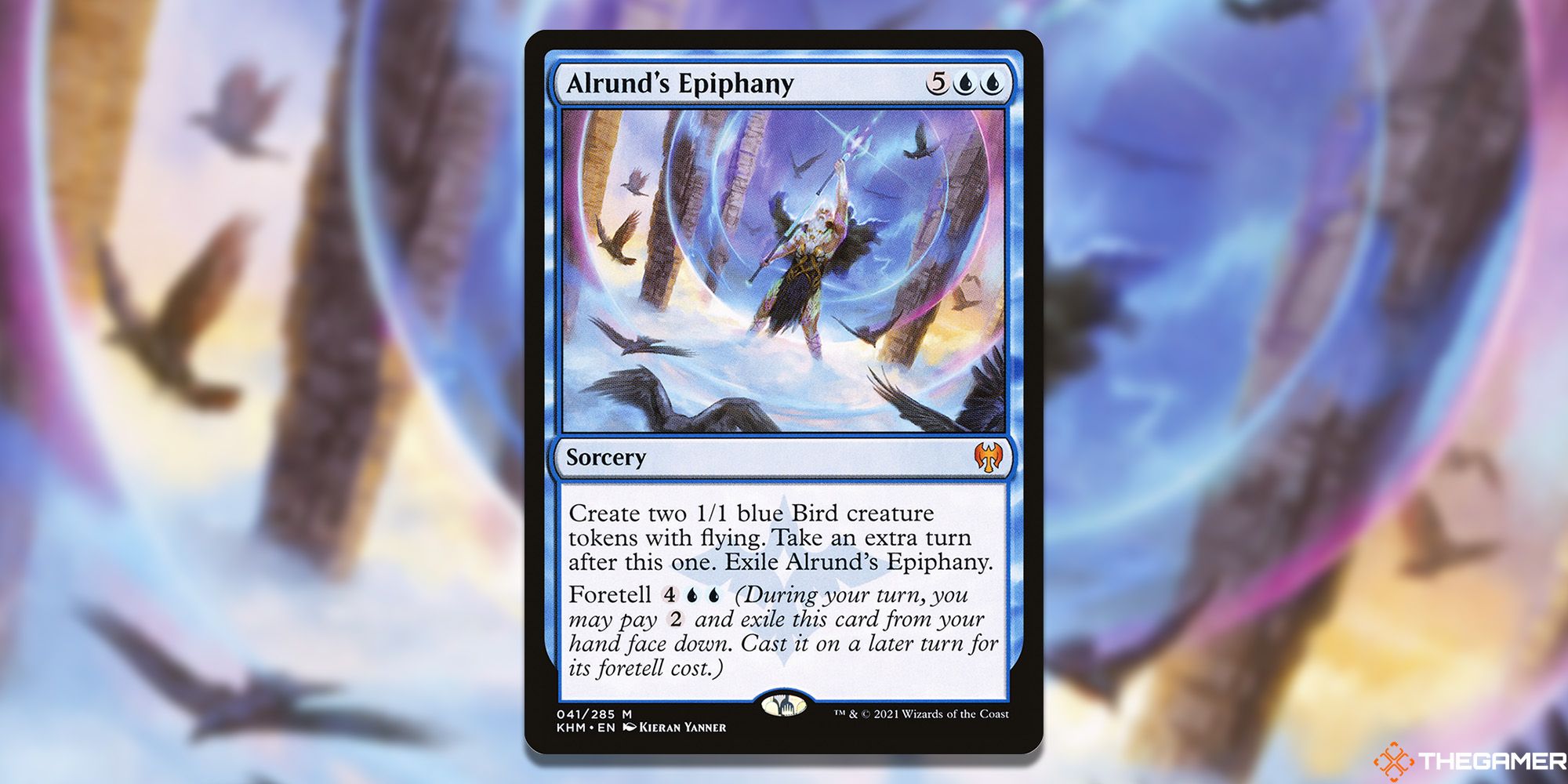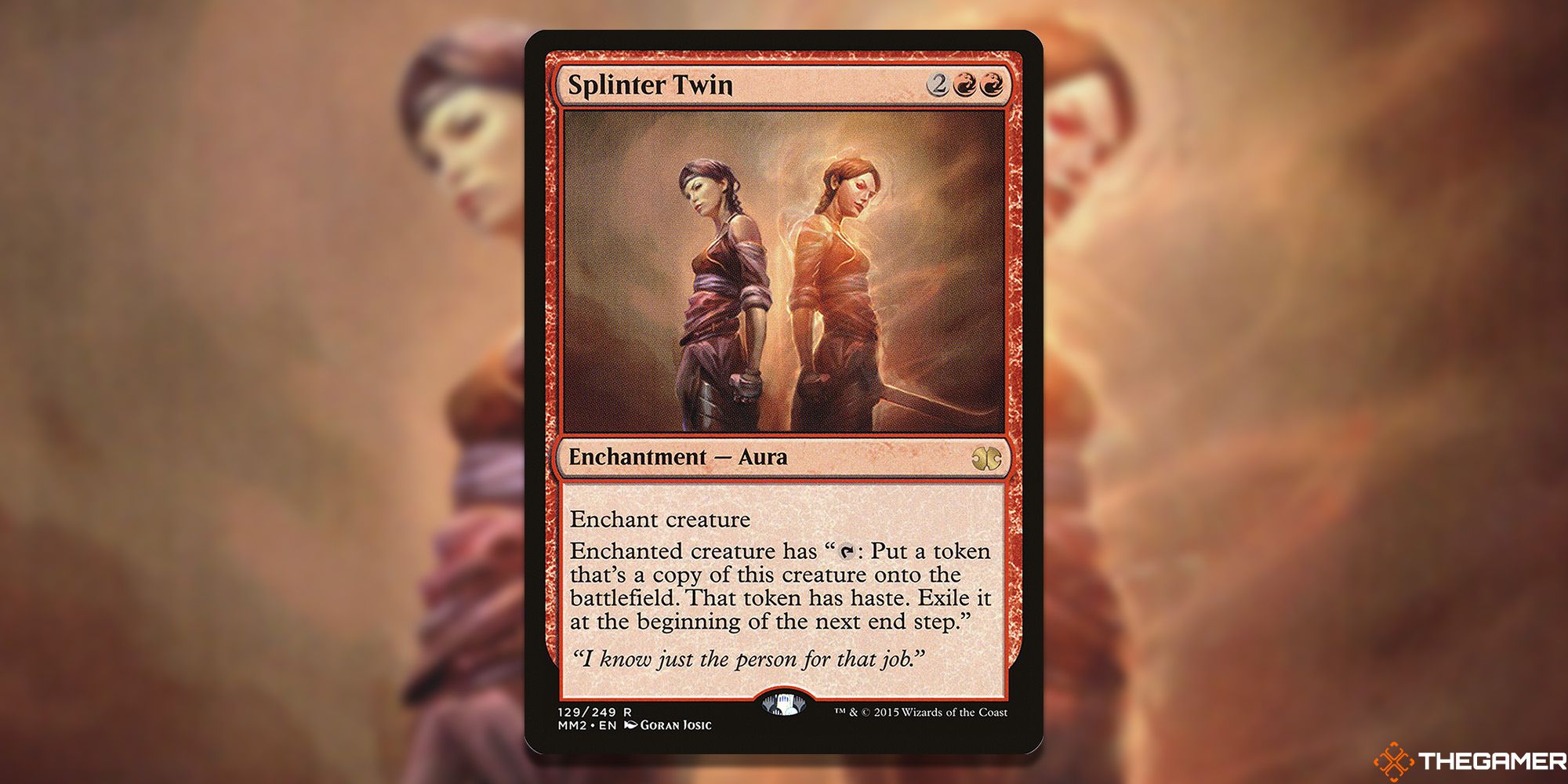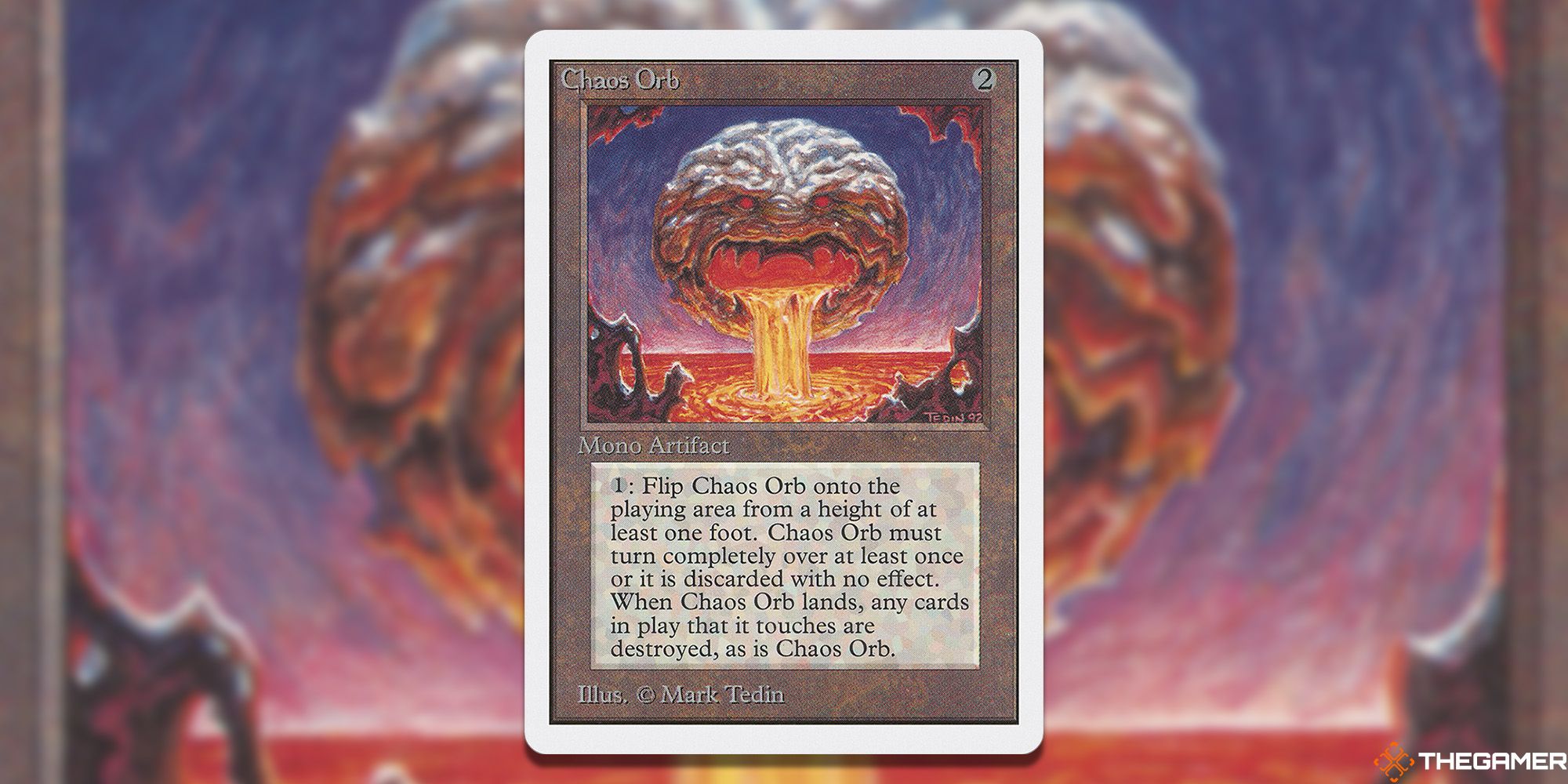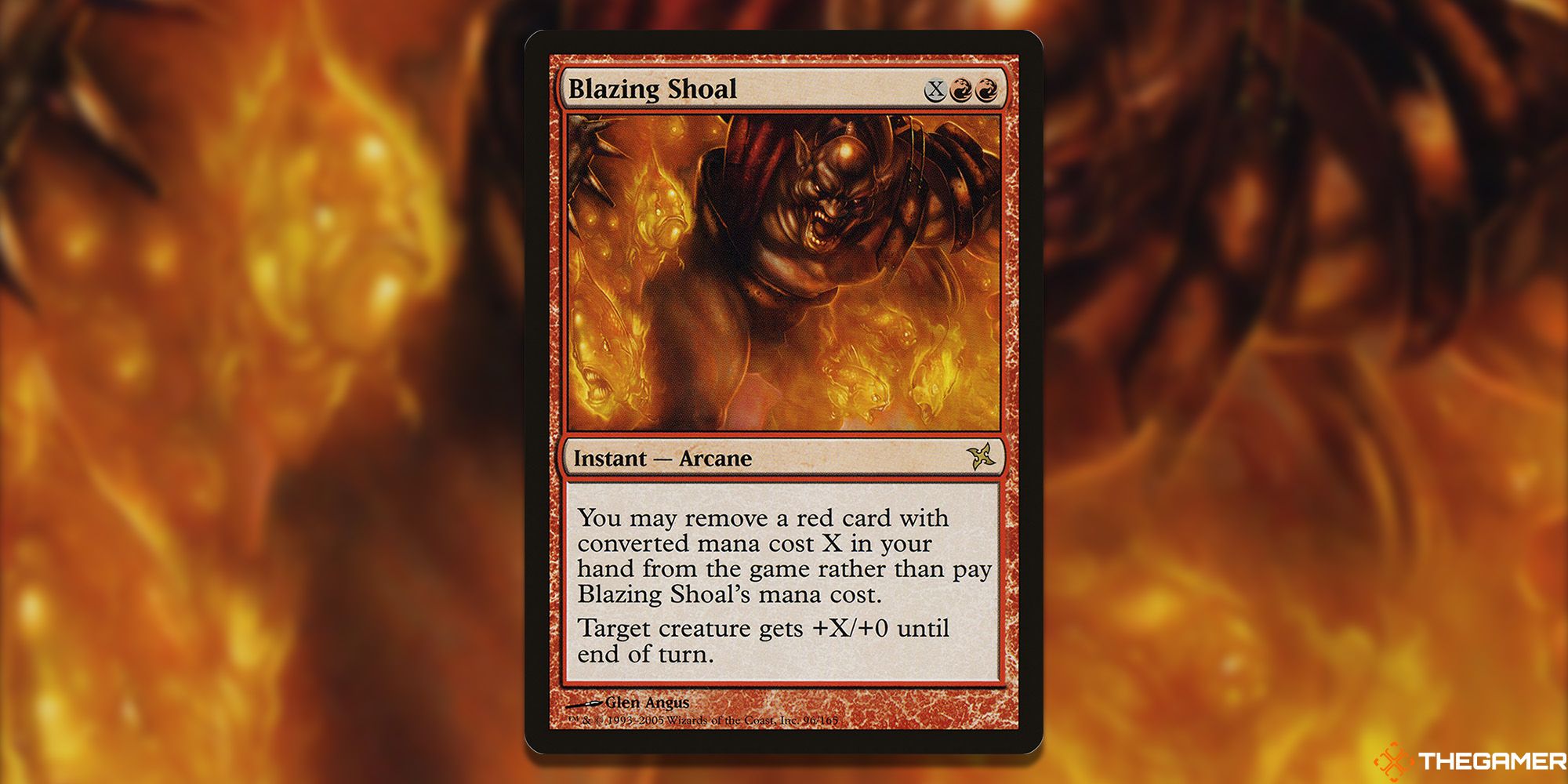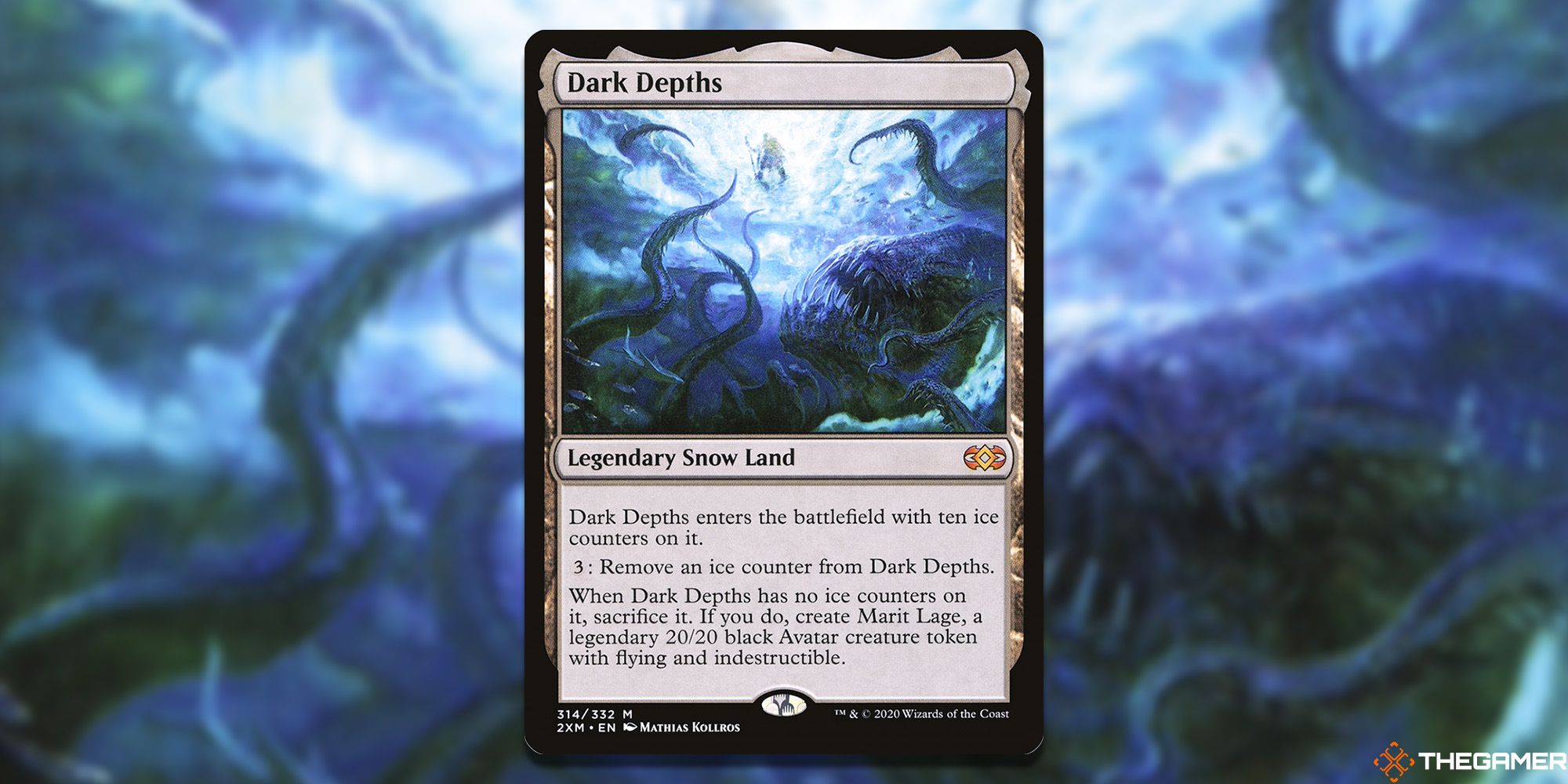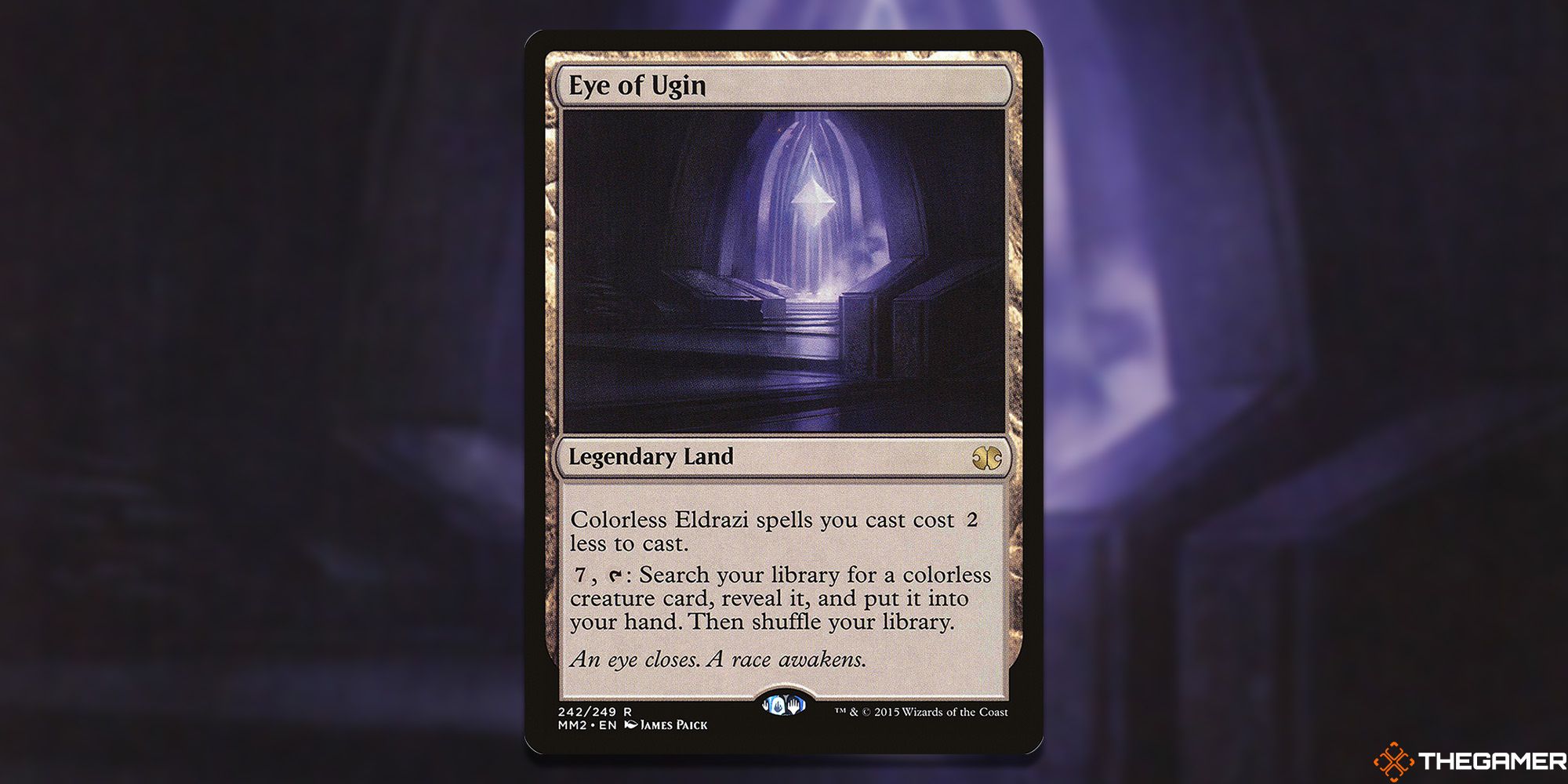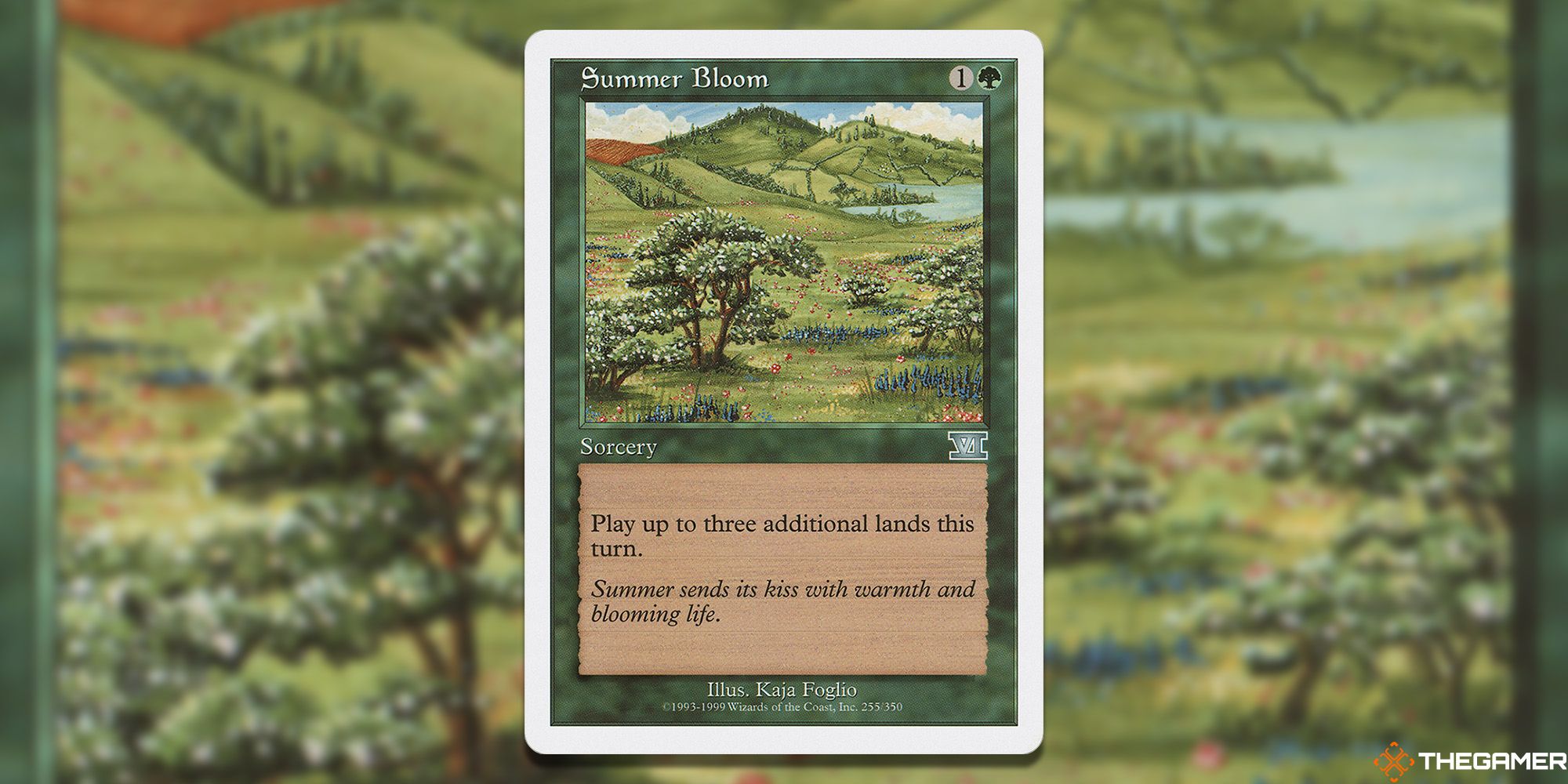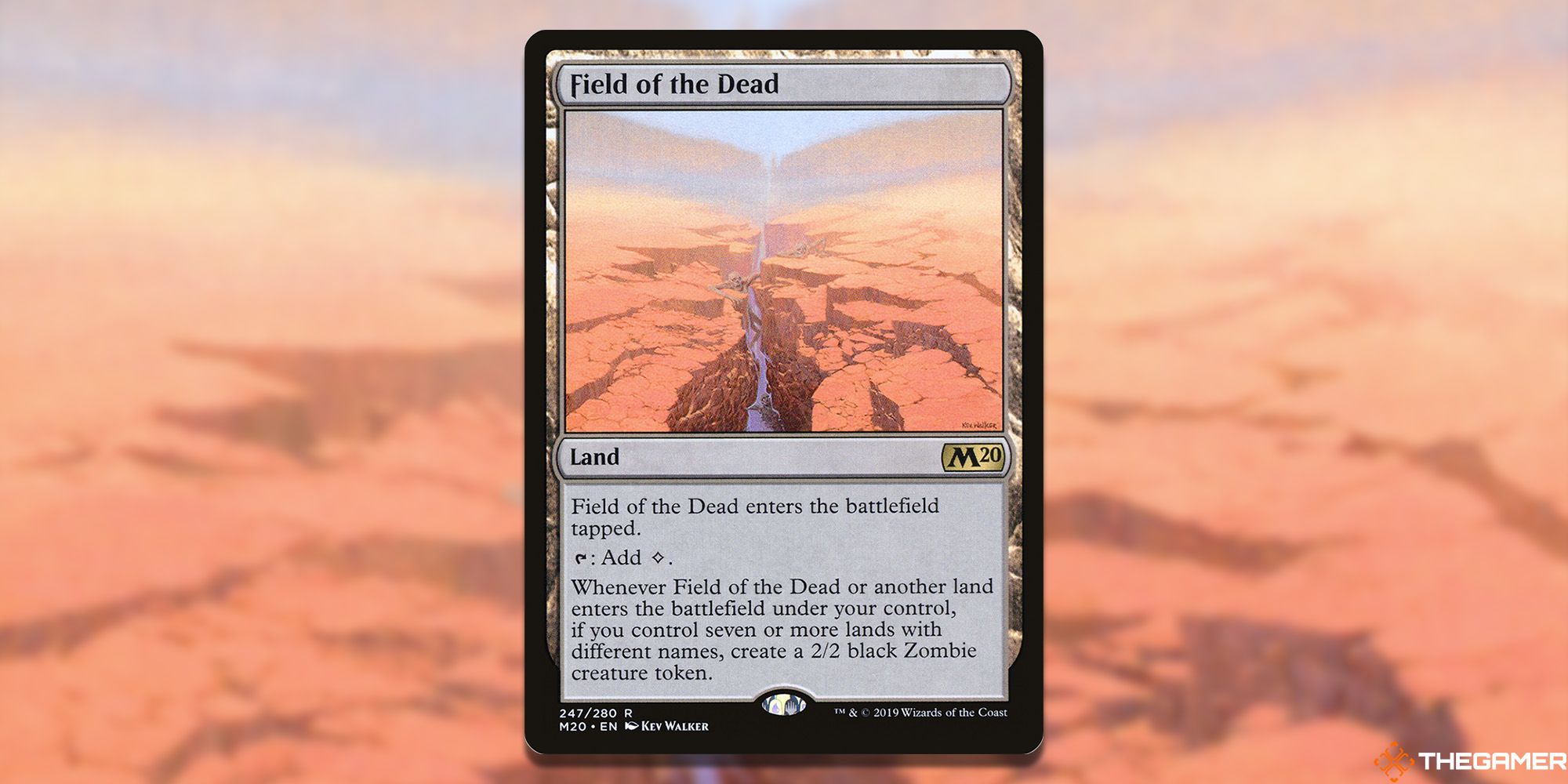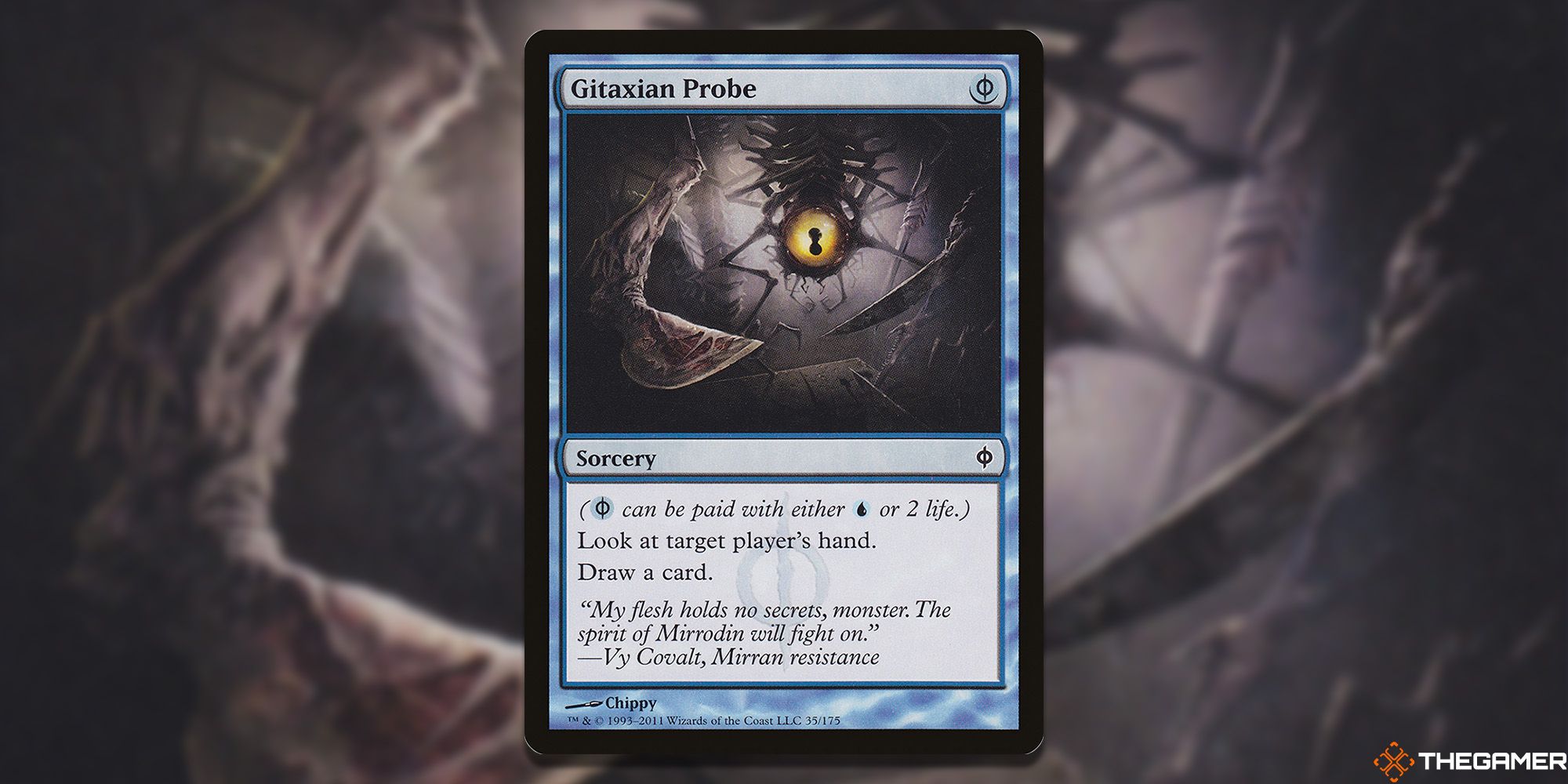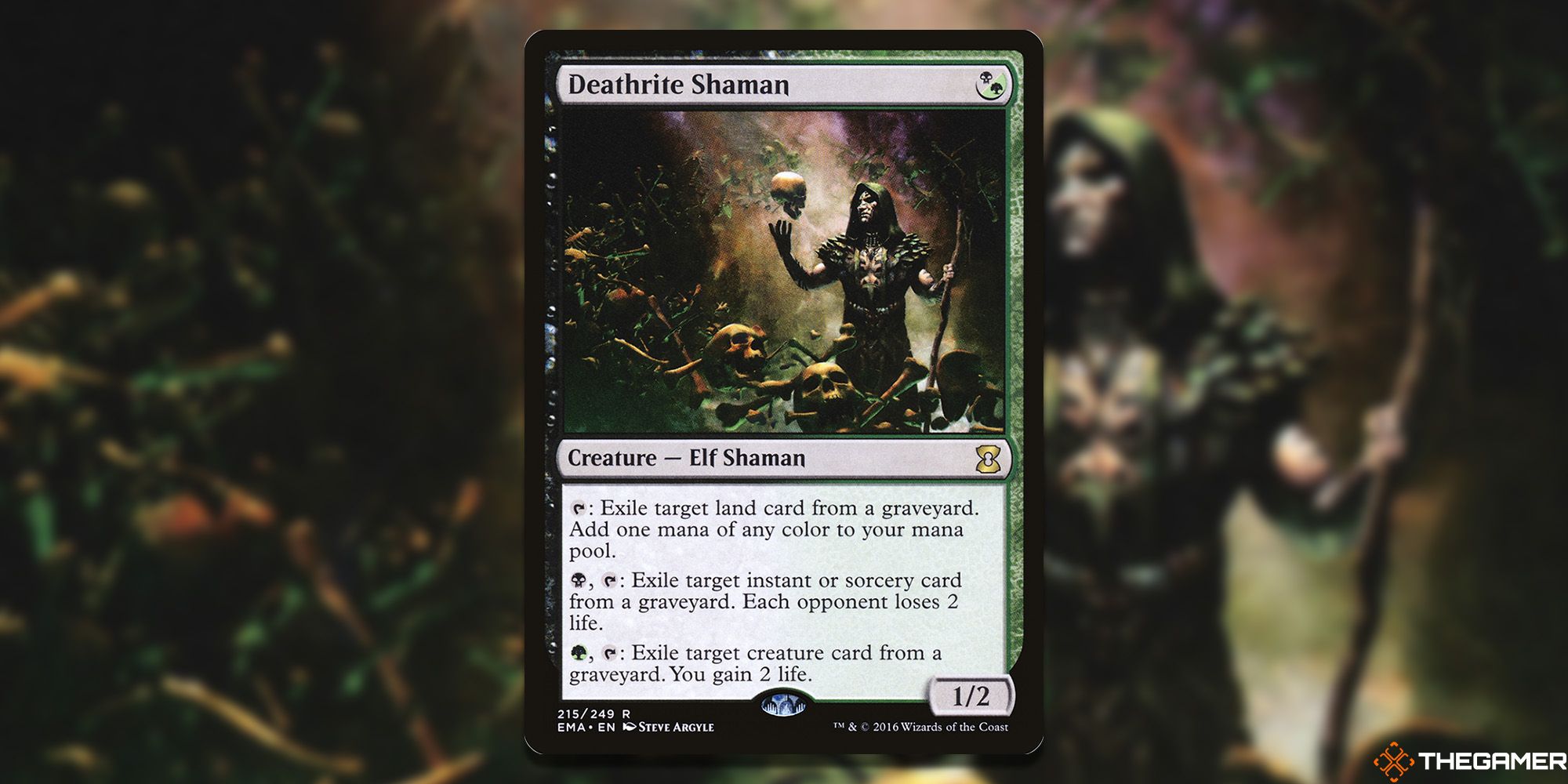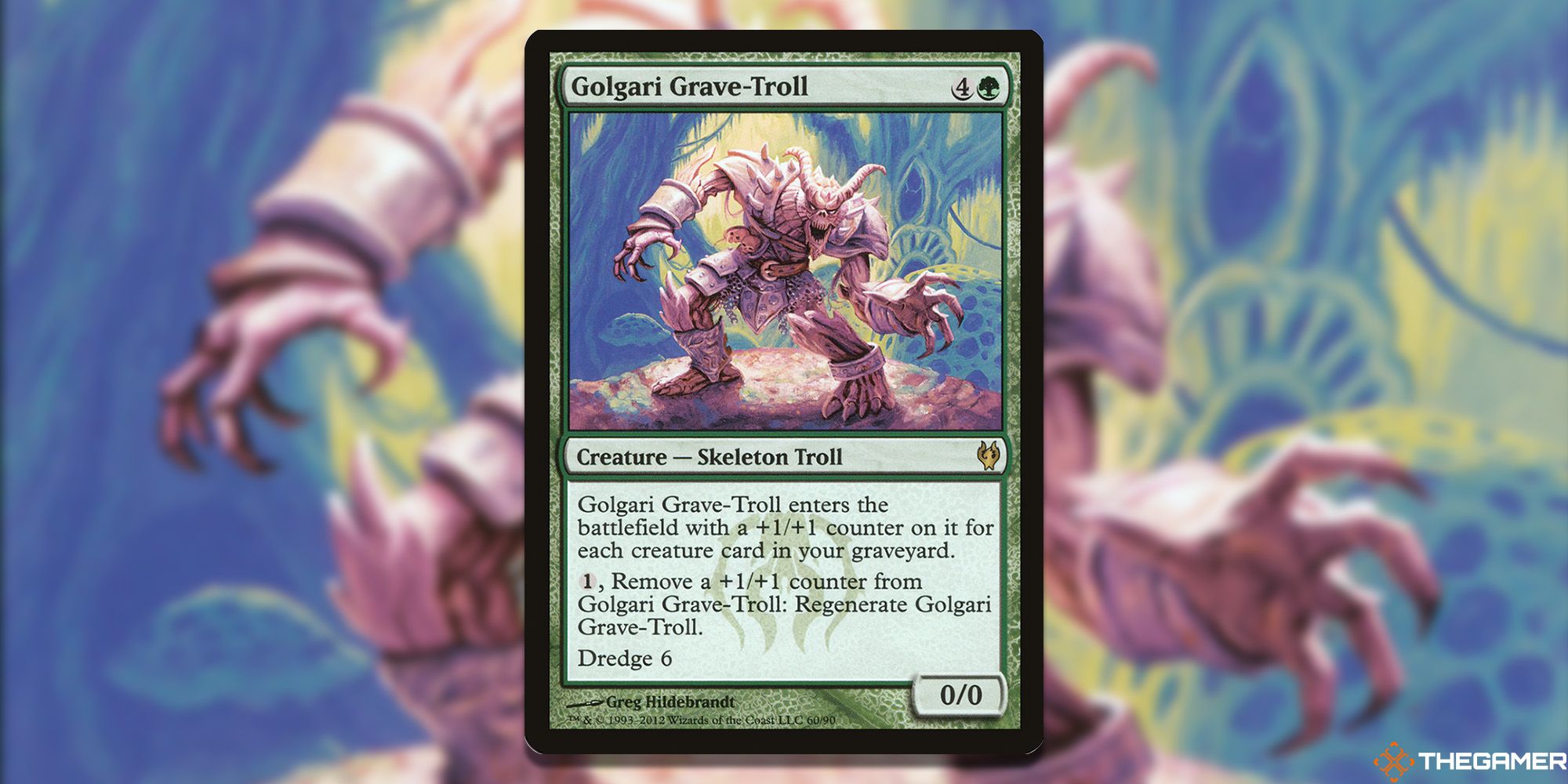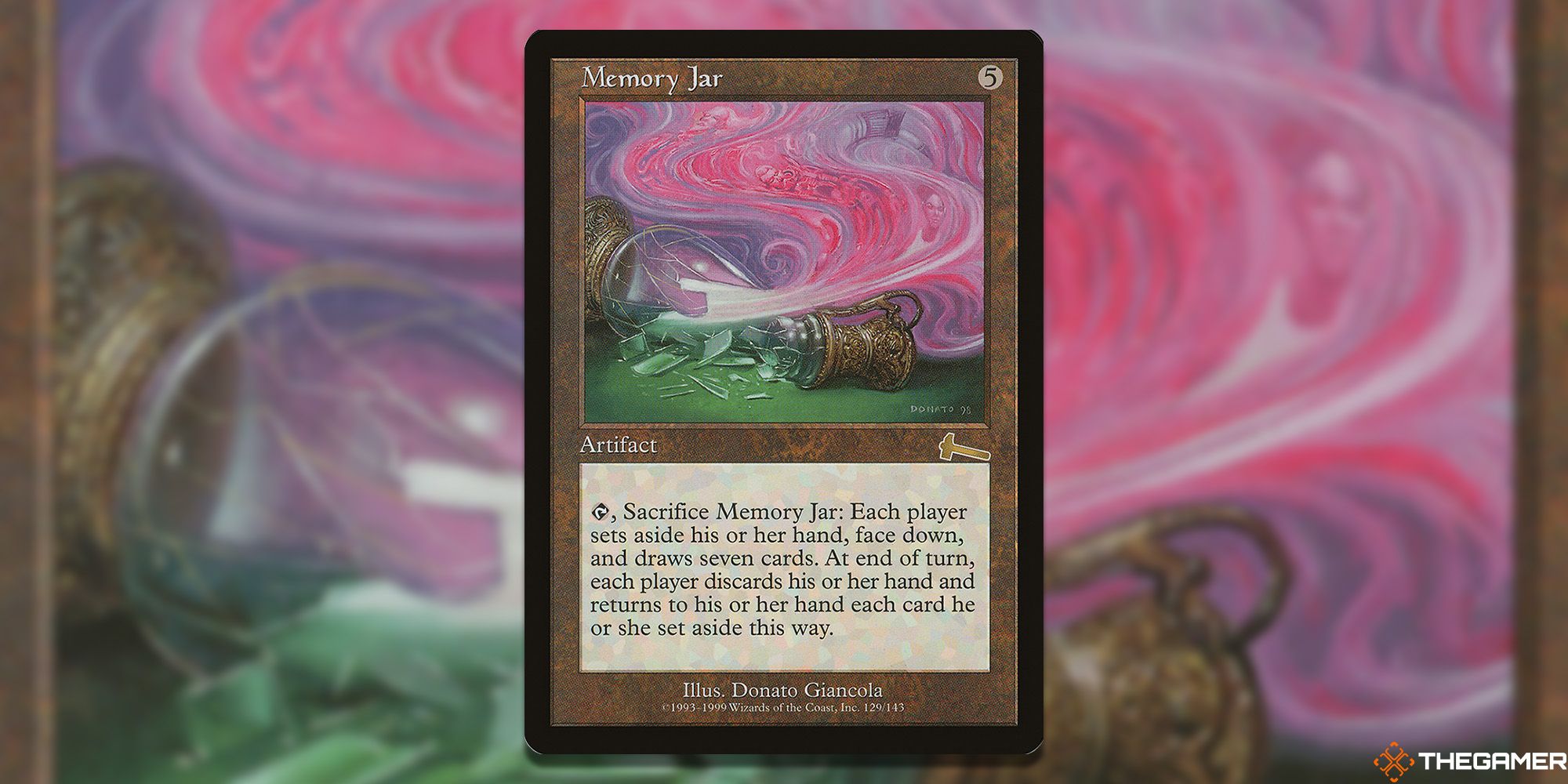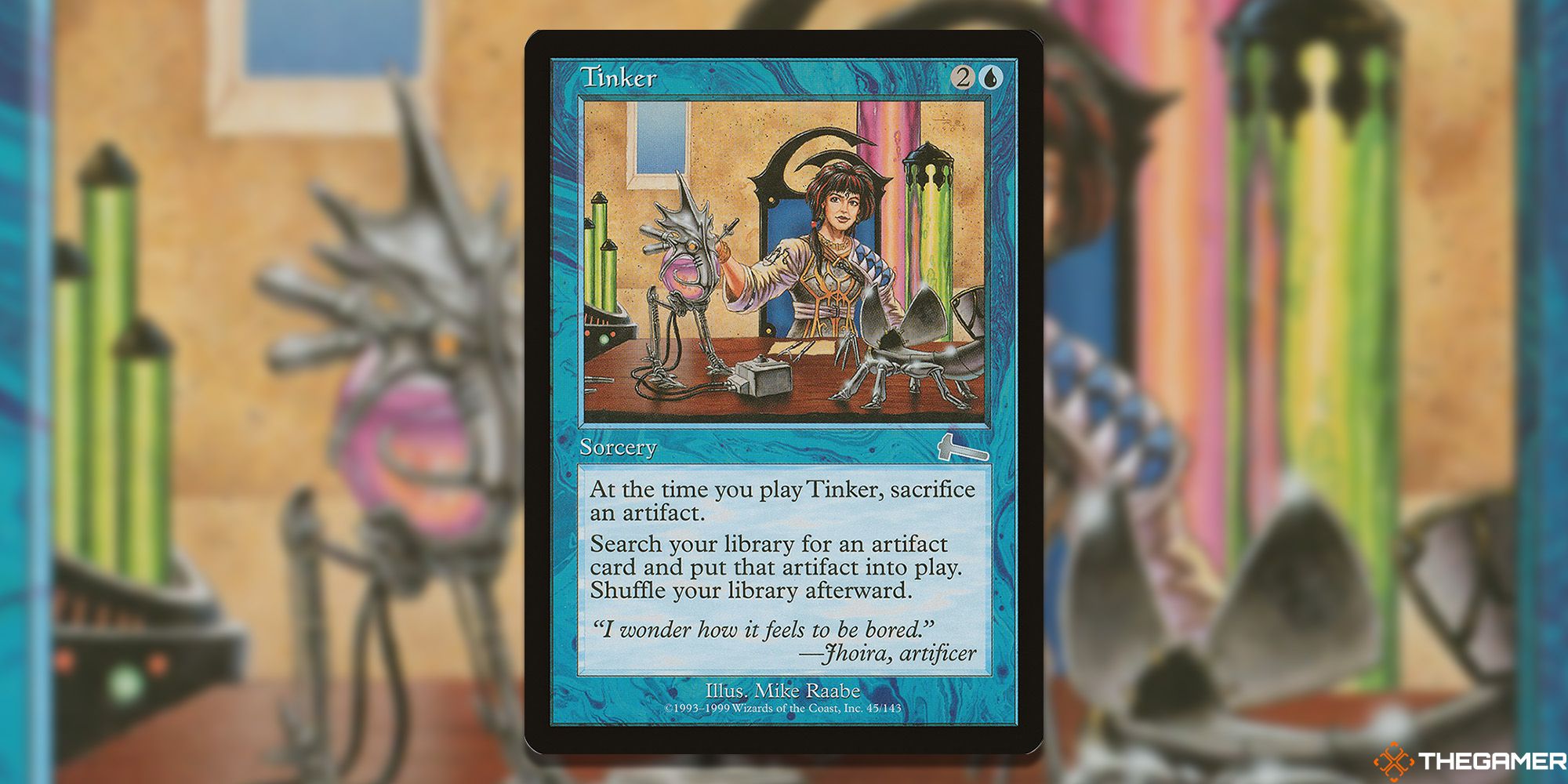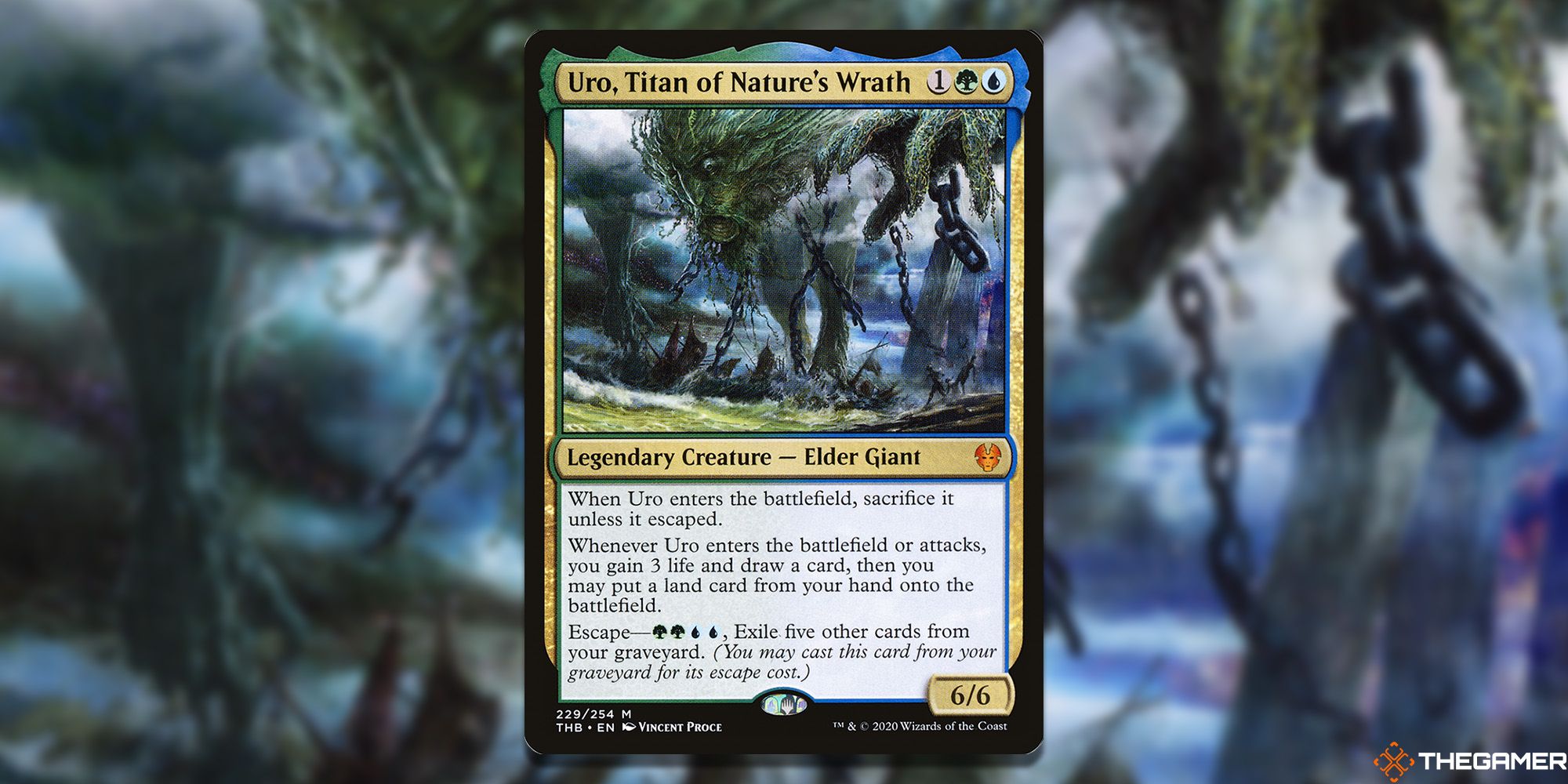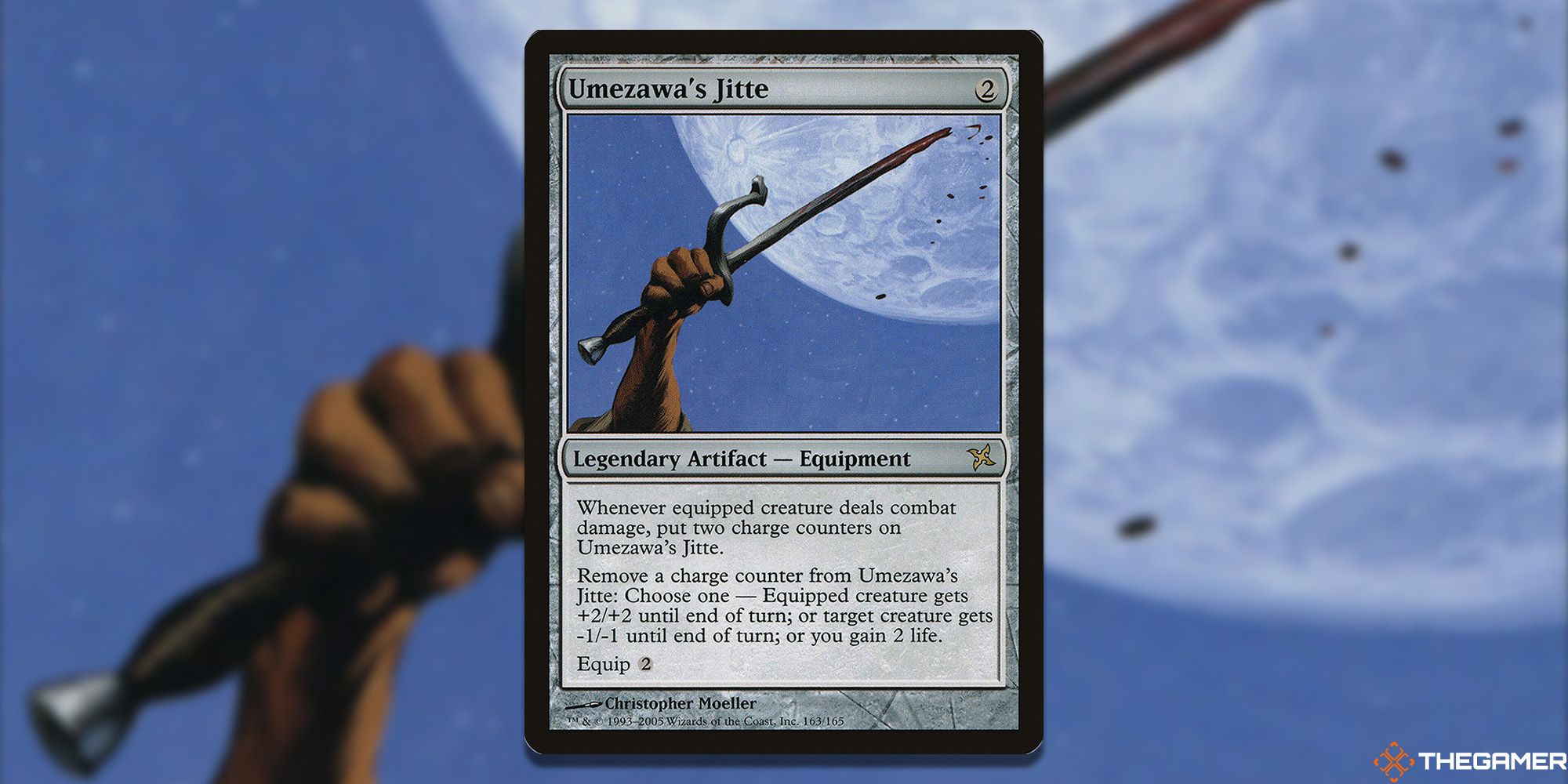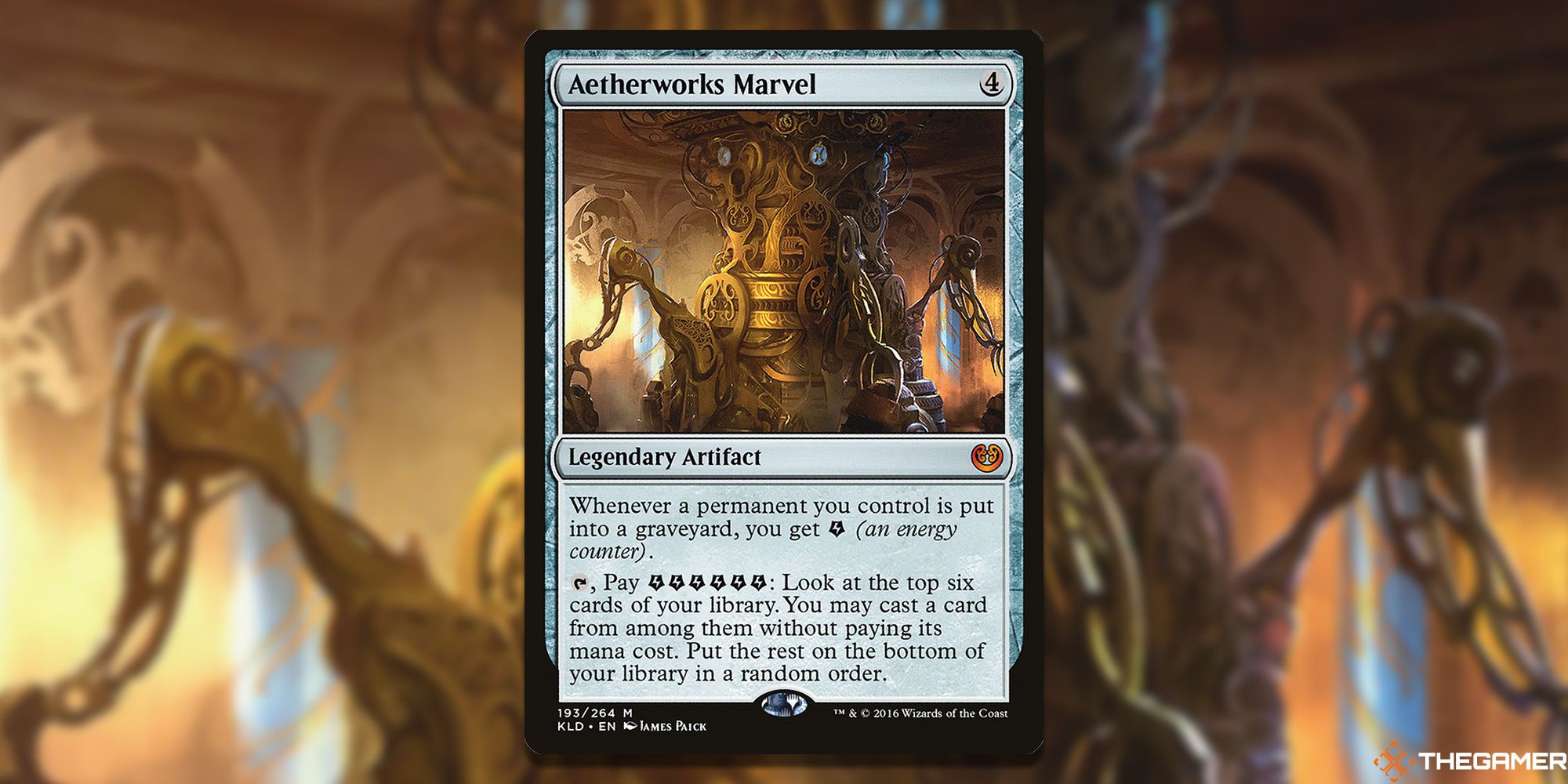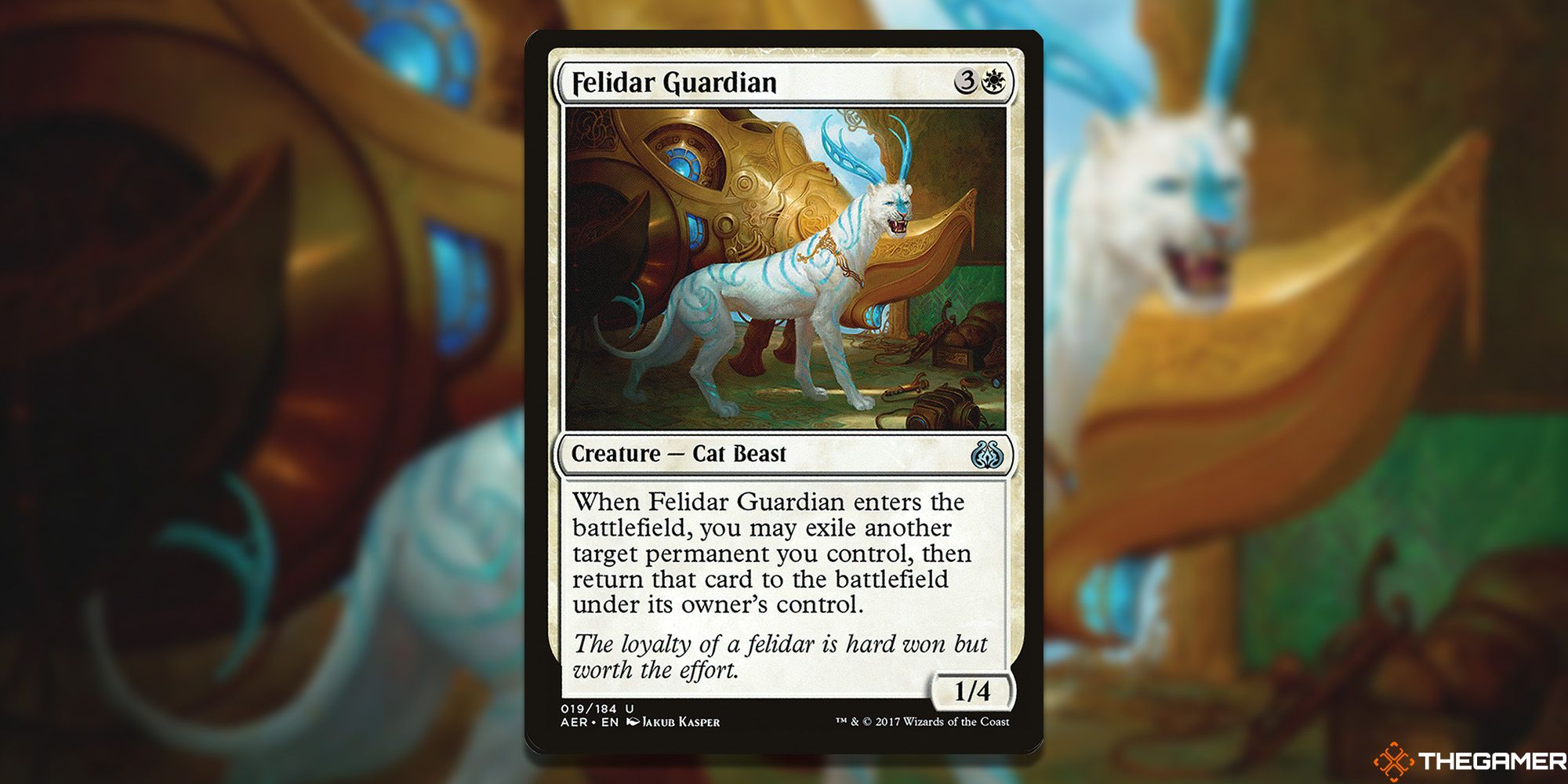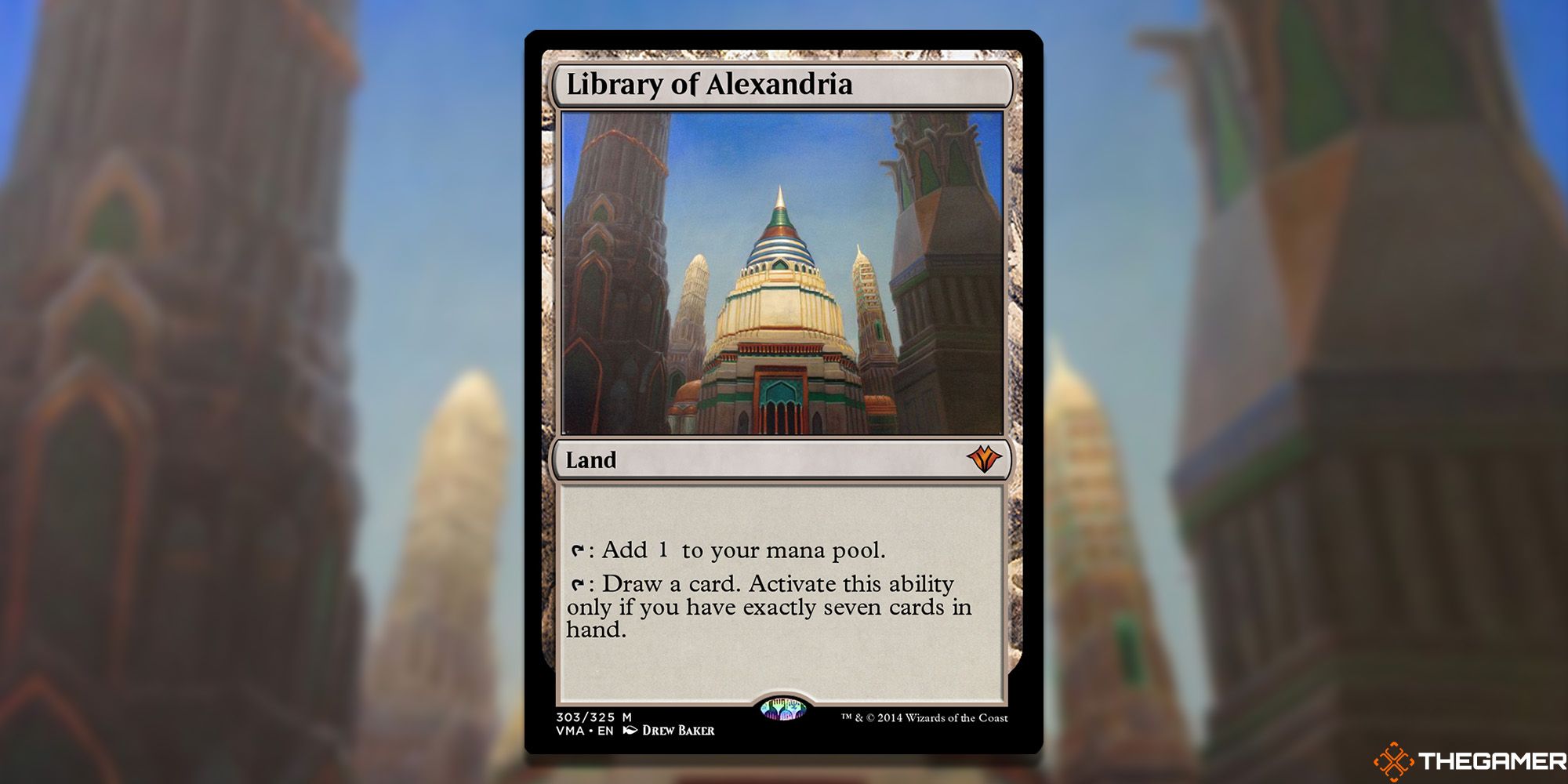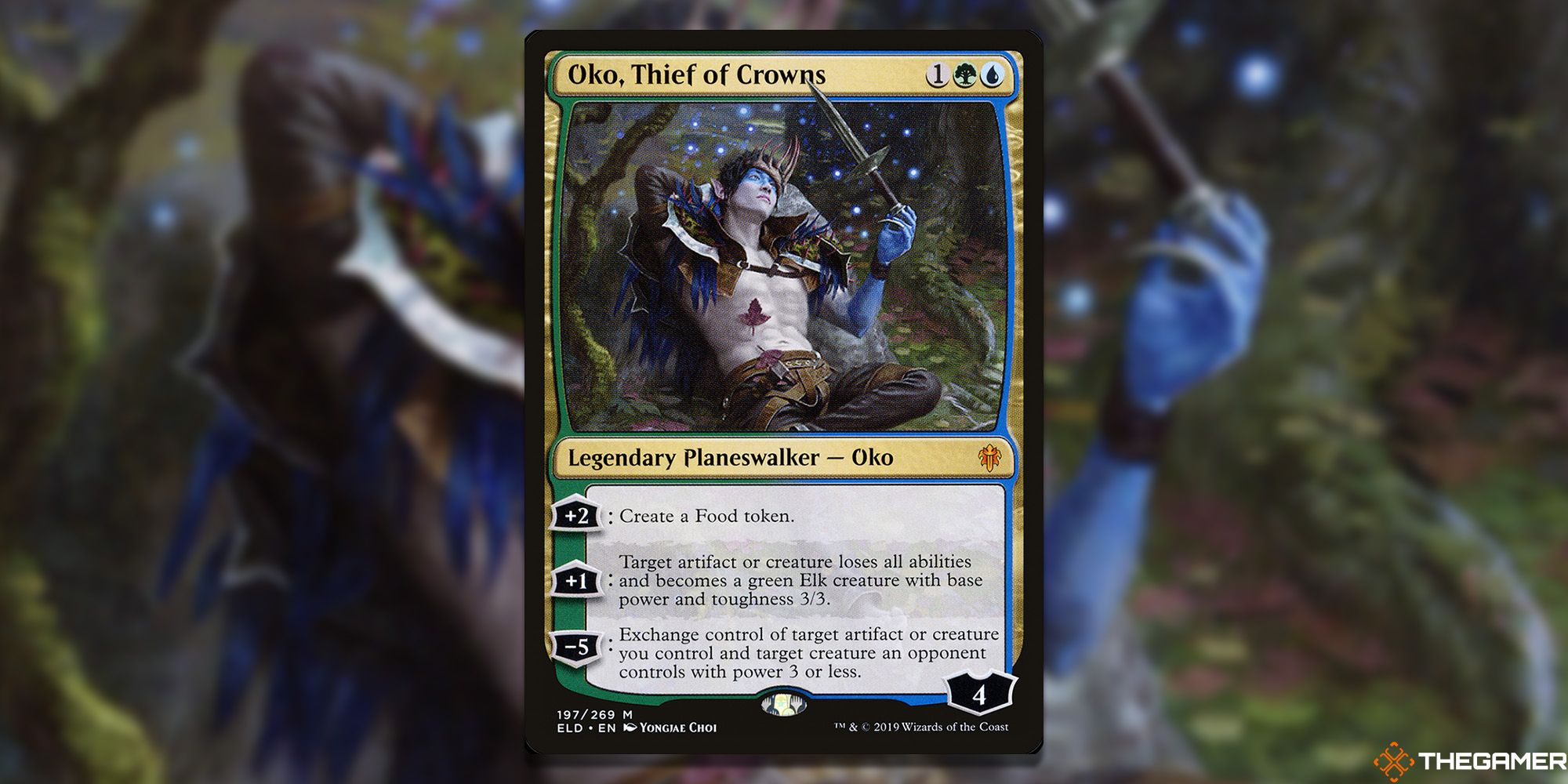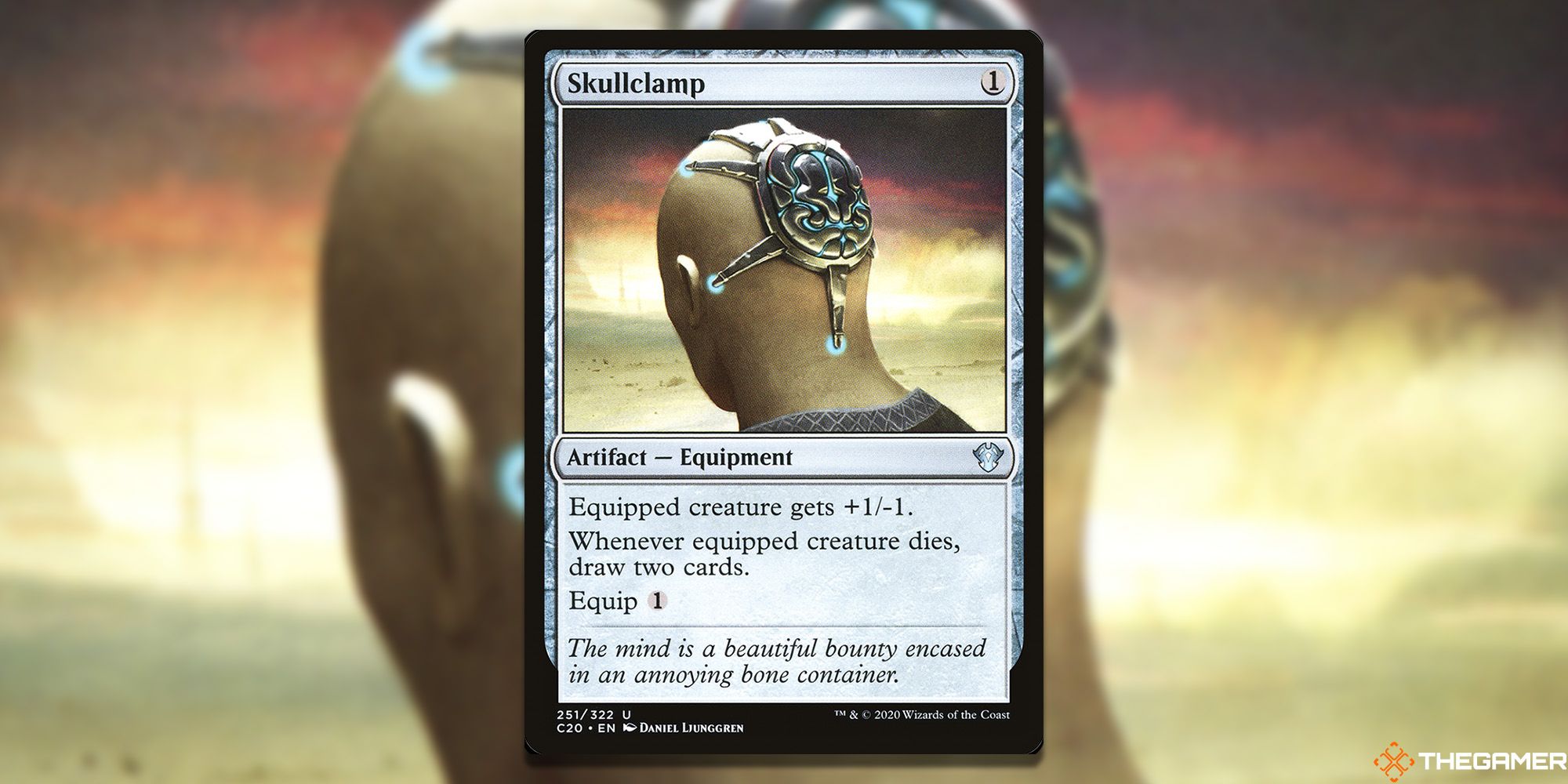Magic: The Gathering is a game that favors skill over luck. In this card game, fortune smiles on cunning and strategic players rather than those who depend on chance. The myriad of card combinations that players come up with makes for exciting gameplay that's unique amongst the card game genre.
The sheer amount of diversity and complexity found in Magic cards makes creating a functionally powerful deck quite rewarding. There's a certain joy in constructing a deck from scratch, then watching all of your hard work unfold when the deck works collectively as one unstoppable force. However, there are some cards so powerful that they often make games one-sided. When properly utilized, these cards greatly place the odds in their owner's favor, making the game less about strategy and more about who draws their powerhouse cards first.
Having multiple cards work together to ultimately defeat the opposition is one thing, but watching one card dismantle your opponents entire gameplan is another thing entirely. These game-breaking cards can end games single-handedly, requiring little more thought than slotting them into your deck. Fortunately, it's inevitable that cards like these are eventually tempered by the ban hammer. Here are the top 30 Magic: The Gathering cards so overwhelming, they just had to get axed from the game.
Updated May 16, 2022 by Chris Stomberg: In the four years since this article's publishing , Magic: The Gathering has seen a number of new set releases. With each single release, hundreds of new cards are added to the pool. Unfortunately, these past four years have been among the most tumultous in Magic's history as far as bannings are concerned. As the game's total card pool continues to increase, combinations expand even further resulting in more and more powerful interactions that developers can't foresee. Consequently, a number of bans have been made in recent years across all constructed formats. We've added the most notable of these bans to the list, but the 30 banned cards listed here are by no means exhaustive.
30 Oops, Infinite Turns (Alrund's Epiphany)
Alrund's Epiphany is a sore spot for many contemporary Standard fanatics. Taking extra turns has always been a cool mechanic in Magic, however, its not nearly as fun for the person on the other side of the table. Limiting a player to only taking one more turn resolves this issue, but what if the take one more turn spell is cast one after another? That's ultimately what began happening with Alrund's Epiphany as players would foretell the card early in the game only to begin casting it when they had drawn at least one more copy.
Furthermore, the simultaneous existence of Goldspan Dragon led to players being able to produce absurd amounts of mana for other spells whilst taking their extra turns. In other words, it got to a point where as soon as an Alrund's Epiphany resolved, the game was basically over. Consequently, Alrund's Epiphany was banned in Standard on January 25, 2022. After all, did you really get into Magic just to watch someone else play the game?
29 Double The Trouble (Splinter Twin)
The troublesome red card Splinter Twin from the Rise Of The Eldrazi expansion often had players seeing double, then triple, then infinite. You could attach this magical aura to creatures like Deceiver Exarch and Pestermite as early as turn four. Then, these creatures could generate never-ending single copies of themselves, leading to an instant game-winning combo.
As a result, Splinter Twin eventually ended up being banned in Modern.
When it was banned, Wizards cited the reason for its banning as being poor color representation for red alongside the UR Twin deck taking up a large enough portion of the meta (around ten percent) that it was barring other deck strategies from having a proper chance. While some amount of this reasoning is true, the ban left many players extremely upset and it remains one of the most controversial decisions ever made in Magic history.
28 The Rule-Breaker (Chaos Orb)
Some cards may be powerful, but they definitely don't need to make actual physical contact with other cards in order to deal damage. Chaos Orb breaks the rules by literally making contact with other cards, then taking them out of the battlefield in the process! Its obscure rule of being flipped onto other cards ultimately made this amount of chaos obsolete.
While it could've been a card with a fun game mechanic to uphold, chaos orb was still banned in all formats. For what it's worth, it would've been strange to see people constantly flicking cards at each other, so, in the end, this was probably a good call.
27 Burning Frustration (Blazing Shoal)
The Betrayers of Kamigawa expansion brought some interesting cards to the game, but not many deserved the ban hammer as much as Blazing Shoal. This instant was especially frustrating to play against since it could be cast very early without much of a cost. Then, it would greatly amplify the power of a creature way too early in the game.
In the process, it would often spell doom for any opposing player, especially if its owner had a card with a relatively high converted mana cost in their hand. Now that the card is banned in modern play, at least players will have one less power amplifying card to worry about.
26 Slumbering Evil (Dark Depths)
Dark Depths might appear like an unassuming and harmless-looking land card at first glance. However, it's actually a ticking time bomb that would unleash a monstrous indestructible creature! Though it would usually take a while before it could summon its legendary 20/20 avatar creature, this was easily remedied with the help of Vampire Hexmage. Consequently, it's no surprise that this card was banned in the modern format given the myriad opportunities to exploit it with cards printed in the past as well as cards yet to come.
25 The All-Seeing Eye (Eye Of Ugin)
Some cards are notorious for allowing game-breaking amounts of power to enter the battlefield early in the game. Eye Of Ugin is one such example. Eye Of Ugin accelerated the arrival of powerful Eldrazi spells by making them cost 2 generic mana less.
As if that wasn't enough, it would even give owners the most powerful colorless creature in their library later in the game. Thankfully, the Magic community was able to collectively breathe a sigh of relief when this land was finally banned in Modern.
24 Summer Won't Be Coming (Summer Bloom)
Casting more powerful cards requires a lot of resources, and players are hindered from casting them early due to the limit of playing one land per turn. Summer Bloom threw this rule out of the window by allowing its caster to play three additional lands in a single turn. This accelerated your chances of casting extremely powerful cards very early in the game. Mana accelerating cards have often given players a huge advantage, and Summer Bloom is just one example of how powerful mana ramping effects can be.
Eventually, the ban hammer struck it down, removing it from the Modern format. Thankfully for everyone who plays Modern, Summer won't be blooming again anytime soon.
23 Zombie Party (Field Of The Dead)
This unassuming land card saw its first ban on October 1, 2019 during its Standard legality. The card was banned in Standard due to the existence of Golos, Tireless Pilgrim. Using Golos, players built Ramp decks that sought to play this pilgrim as early as possible in order to fetch a Field of the Dead from their deck. Thanks to some of the deck's other cards ramping out lands early, this build could start producing an unending army of zombies as early as turn four.
Field of the Dead completely warped the Standard metagame. The only decks that existed for some time were ramp decks featuring Field of the Dead, and hyperaggressive red decks or planeswalker heavy decks which were built to beat Field of the Dead. As a result, it was banned in Standard. Later, on February 15, 2021, Field of the Dead would also be banned in Modern for reducing deck diversity. Eventually, it would come to see a ban in Pioneer as well. Ultimately, this land's ability to produce free tokens for virtually zero deck building cost turned out to be impossible for most competitive decks to resist, and any card that fits into every deck in a given format is a card that needs to go.
22 Small Probe, Big Problem (Gitaxian Probe)
Sometimes, it only takes a small and unlikely spell like Gitaxian Probe to cause some serious damage. According to Wizards of the Coast, this card was “subtle, but powerful” and the benefit that it provided came at “too low a cost.” Due to the probe functioning as a cantrip (draws a card) and costing a single Phyrexian mana, it allowed players to peer into their opponent's hands for the often negligible cost of two life.
The card was not only incredibly good, but just plain annoying to have to play against. Consequently, the probe was banned in Modern and Legacy, as well as becoming Restricted in Vintage.
21 All-In-One Miracle Worker (Deathrite Shaman)
The Deathrite Shaman's versatile and varied skill-set made it a card that was practically begging to be banned. Deathrite Shaman would often take control of a game on its own, and all at the low cost of a single mana. This notorious shaman could add mana, take away life points, and even restore life to its owner.
In addition, it didn't help that it exiled cards from Graveyards, rendering deck strategies relying on the Graveyard virtually useless. Altogether, Deathrite Shaman simply offered too much for any deck to pass up, eventually leading to its banning in both Modern and Legacy.
20 Grave Robbery (Golgari Grave-Troll)
Trolls may typically eat other powerful creatures for breakfast, but the Golgari Grave-Troll preffered most of its meals rotten. This fiendish monster became stronger the more creatures piled up in its owner's Graveyard. While that sounds bad enough, it was only the tip of the iceberg.
What made the grave troll a perfect Modern format ban candidate was its Dredge 6 ability which allowed a player to drop the top six cards of their library into their Graveyard instead of drawing, then return Golgari Grave-Troll to their hand. This made the troll a recursive threat that returned to the Battlefield even stronger every time it was removed! More importantly, though, the ability to put so many cards in your graveyard for almost free was ultimately deemed too powerful to exist in Modern.
19 Jar Of Broken Dreams (Memory Jar)
Memory Jar forced players to sacrifice all the cards in their hands, then draw a fresh new hand of cards only to return back to their original hand later on. The confusion this caused alone was enough to warrant it a ban from competitive play, but it also opened up possibilities for some devastating combos. Furthermore, the card's effectiveness was amplified when used in conjunction with damaging cards like Megrim which punished players for every card that they were forced to discard. All we can really say is thanks for the memories, thanks for the memories!
18 Simply Overpowered (Tinker)
The power of Tinker lies in its simplicity. Players were only required to sacrifice one artifact and expend three mana in order to cast a game-changing spell. Once Tinker was used, players could instantly bring devastating artifact creatures like Blightsteel Colossus into the battlefield with little to no effort!
Given its low cost, it's easy to abuse Tinker's power as early as the first turn. With that much power, it's quite understandable why it's illegal to use in every format and Restricted in Vintage.
17 Father Nature (Uro, Titan Of Nature's Wrath)
Quite possibly taking the cake for the card most quickly banned in its post-rotation Standard format is Uro, Titan of Nature's Wrath. After the Standard rotation in 2020, Uro showed up in just about every deck that was taken to tournament play, including decks that were trying to beat Uro-centric builds. In summary, this titan was so godlike that the only chance players thought they had of beating him involved using him themselves.
Then, on February 15, 2021, Uro would go on to be banned in Pioneer, Historic, and Modern as well. As was the case in its Standard format, Uro eventually took over in each of these formats as well. Any midrange deck that didn't feature Uro simply couldn't hold a candle to decks that did due to the card advantage, lifegain, and ramp that the titan provided. Consequently, this titan eventually had to be chained in all but the most powerful Constructed formats.
16 Sharp Yet Well-Rounded (Umezawa's Jitte)
Another notorious Betrayers Of Kamigawa card is the incredibly versatile equipment known as Umezawa's Jitte. For as little as just two mana, creatures that were equipped with this weapon were given access to a plethora of abilities. This included a power and toughness bonus, a power and toughness shrink on opposing creatures, and the ability to gain life.
There's a lot to be gained with this nifty artifact and its low casting cost didn't help its case of being too overpowered. As such, it eventually came face to face with the Modern format's ban hammer.
15 Marvelously Broken (Aetherworks Marvel)
The very nature of Aetherworks Marvel was a broken mess. It was simply too powerful for some formats to be considered healthy in any way. Back in the day, it was banned in its Standard format and for good reason. Playing with this card stripped away just about any strategic element, making competitive play akin to playing a one-sided lottery.
When its wielder won big and found a ridiculously powerful card (like Ulamog, The Ceaseless Hunger) in the top six cards of their library, they basically won the game. To put it plainly, anyone who remembers this card fondly is honestly better off playing slots.
14 Felonious Feline (Felidar Guardian)
Notorious cat beast Felidar Guardian was also banned in its Standard format. This cat was known for game exploitation that led to instant combo wins reminiscent of UR Twin. Felidar Guardian allowed its owner to temporarily remove a permanent, then return it back to the Battlefield.
Players used this ability to flicker (remove and bring back) their Planeswalker cards, refilling their loyalty counters in the process. It worked exceptionally well with Planeswalker Saheeli Rai, which together created an infinite damage combo as early as turn four. Sound familiar?
13 Knowledge Is Power (Library Of Alexandria)
Visiting the Library Of Alexandria should have been illegal from the getgo given its ability for abuse at the very beginning of a game. It gave players easy access to dig deep into their Library using its card drawing ability.
Cycling through your deck was simple with this card since its only prerequisite was a full hand. This led to players tapping and drawing cards to their heart's content. Fortunately, entrance to the library is now prohibited in every format besides Vintage, and it's even Restricted there.
12 Oko, Thief Of Formats (Oko, Thief Of Crowns)
Oko is a card that many players will remember as the culprit of some of the most unimaginative Magic gameplay in the entirety of the game's history. Oko was so good during his short time in Standard that 70 percent of decks at the Mythic Championship in which he was involved featured him. As such, in November 18, 2019 he was banned.
However, this initial ban didn't prevent the master thief from going on to steal the show in other formats. Oko would then go on to completely dominate the Modern format, culminating in around 40 percent of decks in online and tabletop play featuring him. He was banned yet again in Modern on January 13, 2020 in order to increase the format's diversity. Despite this, Oko would still continue to dominate the Legacy metagame for another entire month. The planeswalker's versatility in answering nearly every threat using his +1 loyalty ability eventually proved to be unbeatable even in a format as old and powerful as Legacy. Finally, Oko would see his last ban in Legacy on February 15, 2021.
11 Your Life For The Cause (Skullclamp)
Skullclamp was so good, you pretty much had to play it, including it in your deck was a no-brainer. This cheap artifact cost one generic mana, and its benefits were beyond broken. Players would equip Skullclamp before sacrificing a creature with another spell, instantly drawing them two cards in the process.
The artifact's easily recyclable ability allowed players to dig through their libraries for an incredibly low cost. Consequently, the artifact became a necessary inclusion in just about every deck, leading to its banning in both Legacy and Modern.

